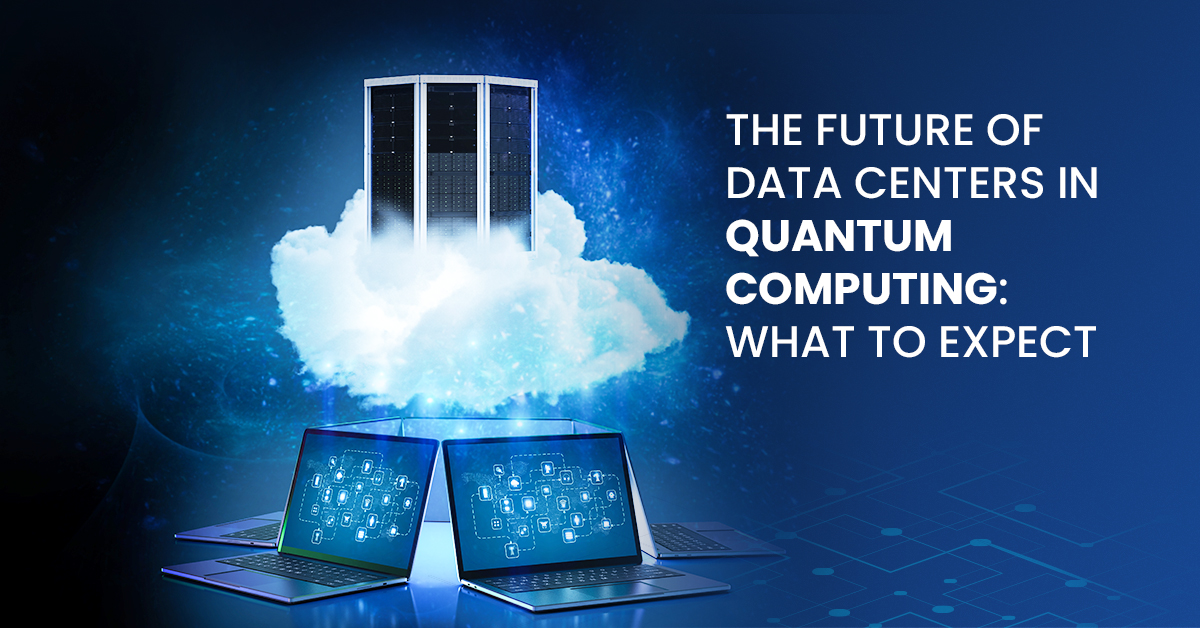
Quantum computing is revolutionizing the way we process and manipulate data. With its ability to perform complex calculations at an unprecedented speed, quantum computers are expected to transform various industries, from finance to healthcare. However, the power and potential of quantum computing require a robust infrastructure to support its operations. This is where data centers play a crucial role. In this article, we will explore the future of data centers in quantum computing and what we can expect in the years to come.
The basics of quantum computing
Before delving into the role of data centers in quantum computing, it is important to understand the basics of this groundbreaking technology. Unlike classical computers that use bits to represent information as 0s and 1s, quantum computers use quantum bits or qubits. Qubits can exist in multiple states simultaneously, thanks to a phenomenon called superposition. This unique property allows quantum computers to perform computations in parallel, making them exponentially more powerful than classical computers.
The role of data centers in quantum computing
Data centers serve as the backbone of any computing infrastructure, and the same holds true for quantum computing. In the context of quantum computing, data centers play a vital role in housing and maintaining the quantum computers themselves. Quantum computers are extremely sensitive to external factors such as temperature, electromagnetic radiation, and vibrations. Data centers provide an optimized environment that ensures the stability and reliability of quantum computers, allowing them to perform at their best.
Moreover, data centers also facilitate the storage and management of the vast amount of data generated by quantum computers. Quantum computations produce large datasets that need to be processed, analyzed, and stored securely. Data centers equipped with advanced storage systems and security measures are essential for managing this data effectively. Additionally, data centers enable seamless communication between different quantum computing platforms and users, fostering collaboration and knowledge sharing in the quantum community.
Benefits of data centers in quantum computing
Data centers bring several benefits to the field of quantum computing. Firstly, they provide a centralized hub for quantum computing resources, making it easier for researchers, scientists, and developers to access and utilize quantum computers. This accessibility fosters innovation and accelerates the development of quantum algorithms and applications.
Secondly, data centers ensure the scalability of quantum computing. Quantum computers are still in their infancy, and their capabilities are limited. However, by leveraging the power of data centers, quantum computing can be scaled up to meet the demands of complex computational problems. Data centers offer the flexibility to add more quantum computers or increase the number of qubits, thereby expanding the computational power of quantum systems.
Challenges and limitations of data centers in quantum computing
Despite their numerous benefits, data centers in quantum computing face several challenges and limitations. One major challenge is the need for specialized infrastructure. Quantum computers require extremely low temperatures to operate efficiently, often close to absolute zero. This necessitates the use of sophisticated cooling systems, which can be expensive and complex to implement in data centers. Additionally, the fragile nature of qubits makes them susceptible to external disturbances, such as electromagnetic radiation. Data centers need to employ stringent measures to shield quantum computers from these interferences.
Another limitation is the limited lifespan of qubits. Quantum computers are prone to errors due to decoherence, a phenomenon where qubits lose their quantum states over time. To mitigate this issue, data centers must employ error correction techniques and continuously monitor and maintain the stability of qubits. These measures require significant computational resources and expertise.
The evolution of data centers in quantum computing
As quantum computing continues to evolve, so too will the role of data centers. In the early stages of quantum computing, data centers primarily focused on providing the necessary infrastructure and support for a handful of quantum computers. However, as the field progresses, data centers will need to adapt to accommodate the growing number of quantum computers and users.
Future data centers in quantum computing are likely to incorporate advanced technologies such as quantum networking and quantum communication. These technologies will enable seamless communication between quantum computers, allowing for distributed computing and collaboration on a global scale. Additionally, data centers may leverage quantum security protocols to protect sensitive data and ensure the integrity of quantum computations.
Cloud computing in the quantum era
Cloud computing has revolutionized the way we access and utilize computing resources. In the quantum era, cloud computing will play a crucial role in democratizing quantum computing and making it more accessible to a wider audience. Quantum cloud computing will enable users to access quantum computers and run quantum algorithms remotely, without the need for expensive local infrastructure.
The integration of cloud computing and quantum computing brings several advantages. Firstly, it allows for the sharing of quantum computing resources, optimizing the utilization of quantum computers, and reducing costs. Users can leverage the power of quantum computers on demand, paying only for the resources they consume. Secondly, cloud-based quantum computing facilitates collaboration and knowledge sharing among researchers and developers worldwide. By connecting different data centers and quantum computing platforms through the cloud, users can collaborate on projects and accelerate the development of quantum applications.
The future of data centers in quantum computing
The future of data centers in quantum computing is promising. As the technology matures and becomes more widespread, data centers will become more efficient and cost-effective. Advances in cooling technologies will enable data centers to maintain the low temperatures required for quantum computers without incurring exorbitant energy costs. Moreover, the development of fault-tolerant qubits and error correction techniques will enhance the stability and reliability of quantum computers, reducing the maintenance burden on data centers.
Data centers will also play a crucial role in addressing the scalability challenges of quantum computing. By integrating quantum computers with classical computing infrastructure, data centers can leverage the strengths of both systems. Hybrid computing architectures will enable the offloading of computationally intensive tasks to classical computers, freeing up the quantum resources for more complex quantum computations.
Building a data center for quantum computing
Building a data center for quantum computing requires careful planning and consideration of various factors. Firstly, the physical infrastructure of the data center must be designed to provide a stable operating environment for quantum computers. This includes implementing robust cooling systems, electromagnetic shielding, and vibration isolation measures. The data center should also be equipped with advanced security systems to protect the quantum computers and the sensitive data they process.
Additionally, data centers need to invest in skilled personnel who can handle the unique challenges of quantum computing. Quantum computing requires expertise in quantum physics, computer science, and data management. Data center operators should collaborate with researchers and scientists to stay updated with the latest advancements in the field and ensure their data center infrastructure aligns with the evolving requirements of quantum computing.
Conclusion
Data centers are the backbone of quantum computing, providing the necessary infrastructure and support for quantum computers to operate effectively. As quantum computing continues to advance, data centers will evolve to meet the growing demands of the field. The integration of cloud computing will democratize quantum computing and make it more accessible to a wider audience. With careful planning and investment, data centers will play a crucial role in shaping the future of quantum computing and unlocking its full potential.



Post a comment